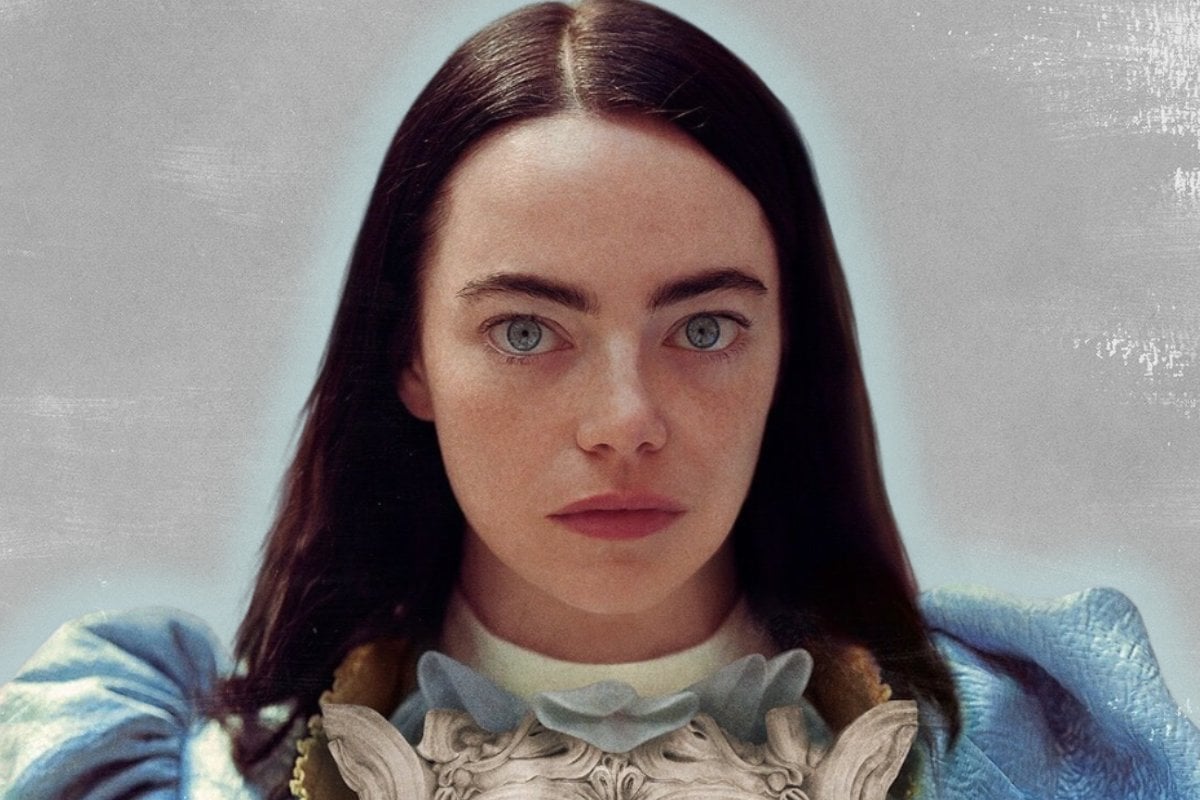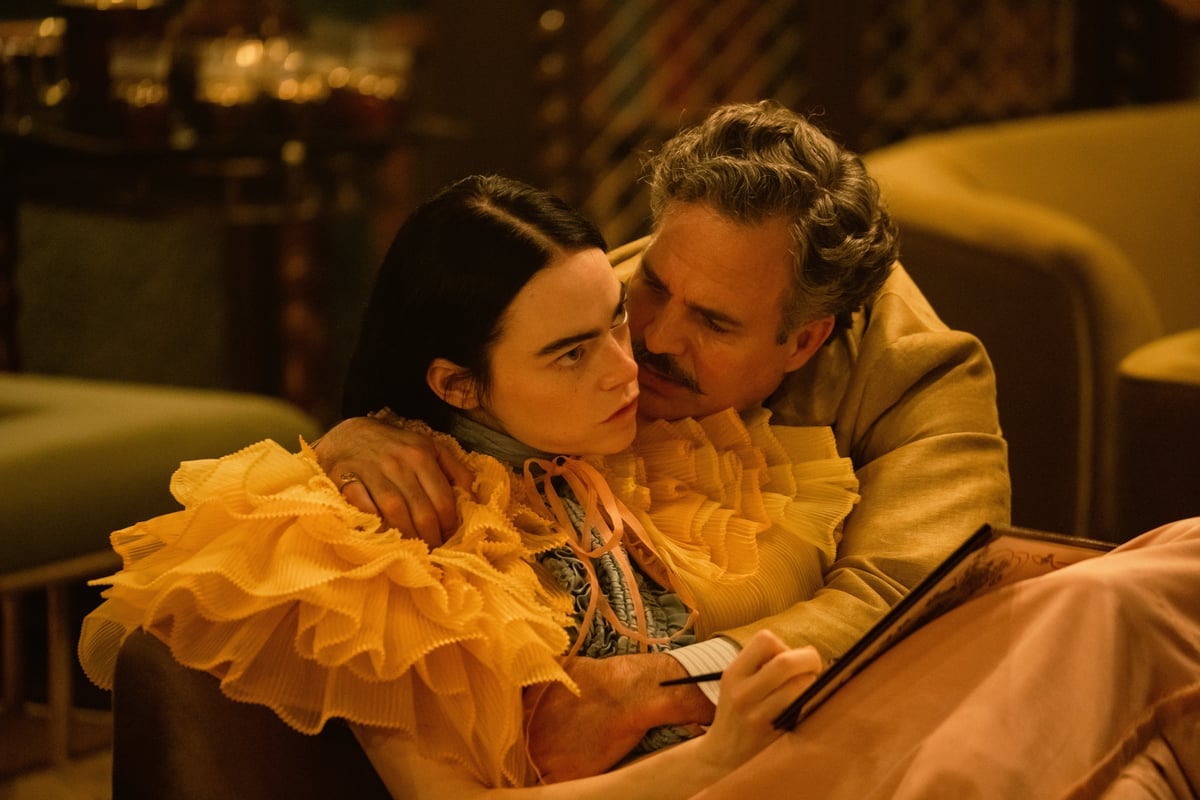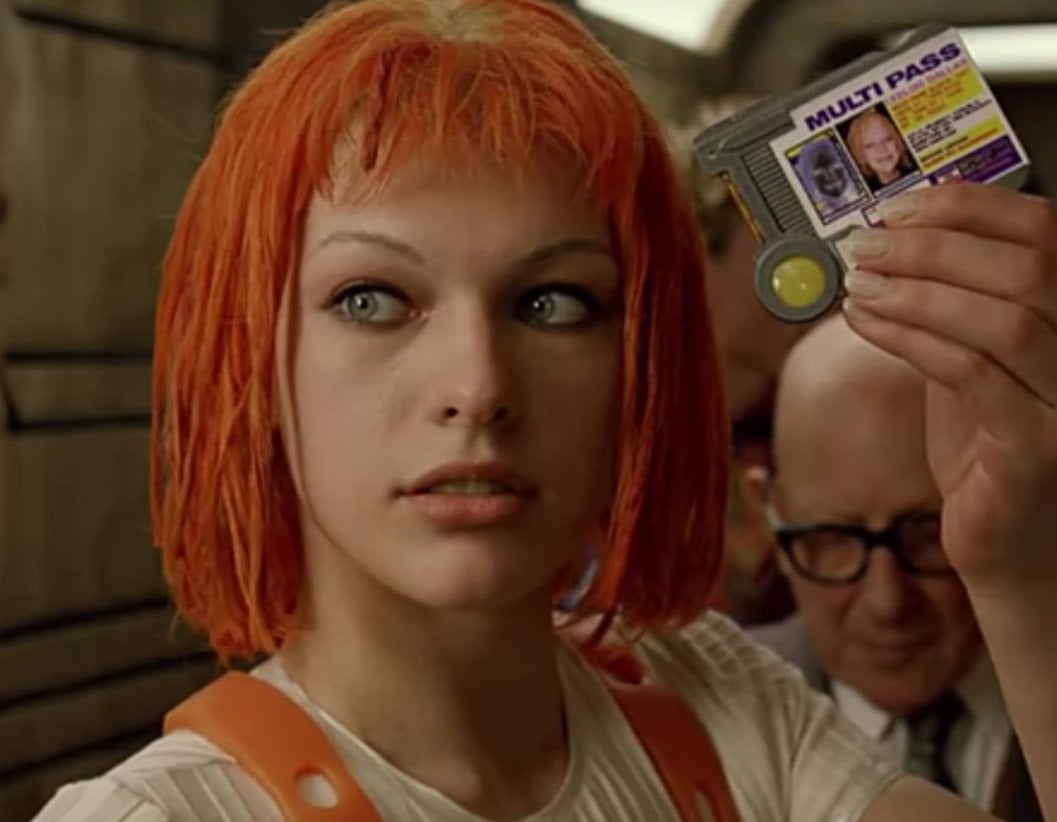
Poor Things has become the breakout movie of this awards season, matching the buzz of predicted winning films like Oppenheimer, Barbie and Killers of the Flower Moon.
At the upcoming Oscars, Poor Things scored 11 nominations, making it the second-most nominated film behind Oppenheimer.
This is despite the fact that the Yorgos Lanthimos film, starring Emma Stone, Mark Ruffalo and William Dafoe, is frankly... quite bonkers.
It features a bizarre narrative that lacks the historical significance of Christopher Nolan and Martin Scorsese's films, or the blockbuster backing of Greta Gerwig's feminist manifesto.
Based on Alasdair Gray's novel of the same name, Poor Things is difficult to describe, but is perhaps best categorised as an erotic surrealist dark comedy.
Watch the trailer for Poor Things. Post continues after the video.
And this movie is sexually explicit. In fact, it makes Saltburn's more divisive sex scenes look comparatively tame.
Stone is expected to win the Best Actress award at this coming Academy Awards, off the back of her Golden Globe win for her transcendent performance as the movie's enigmatic subject, Bella Baxter.
But this is where things get weird. (Oh, and just a warning – spoilers ahead.)



Top Comments